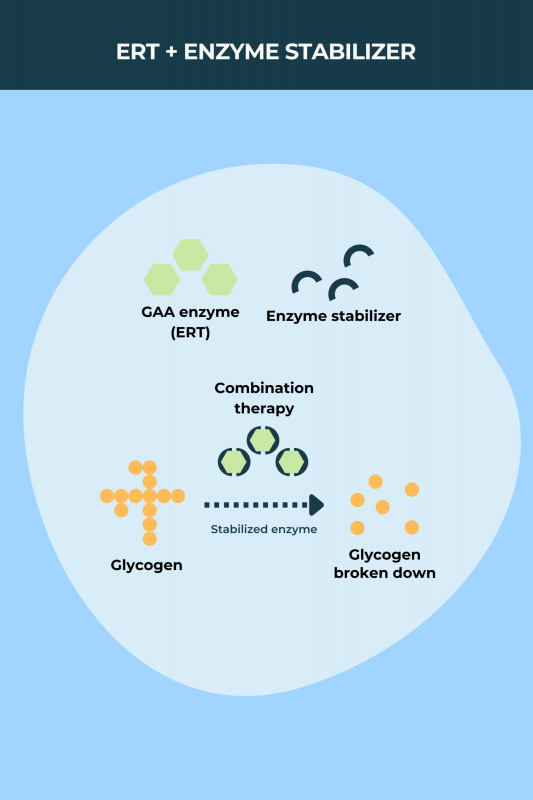
FAQs about ERT and enzyme stabilizers
All forms of Pompe disease are fatal, though outcomes vary substantially depending on the time of disease onset and the rate of progression — babies with infantile-onset disease usually don’t survive past infancy without treatment, while adults with late-onset disease may live for decades without any therapy. Enzyme replacement therapy has been shown to improve survival outcomes, especially if initiated early on.
The most common side effects of enzyme replacement therapy (ERT) are infusion-related reactions, which may include fatigue, headache, nausea, rash, and pain or discomfort. Serious infusion-associated reactions and allergic reactions may occur, and ERT may reduce heart or lung function in patients with some preexisting conditions. The specific safety profile of ERT depends on the particular product used.
Pombiliti + Opfolda (cipaglucosidase alfa/miglustat) is a two-component treatment that includes a version of the GAA enzime and an enzyme stabilizer. The most common side effects associated with this therapy include headache, diarrhea, fatigue, nausea, abdominal
pain, and fever.
Besides enzyme replacement therapy, the two-part therapy Pombiliti (cipaglucosidase alfa) + Opfolda (miglustat) has been approved in the U.S. to treat certain adults with late-onset Pompe disease. Other treatment strategies like gene therapy and substrate reduction therapy are being explored, but are not currently approved for Pompe disease treatment. Supportive treatments like physical and occupational therapy may help improve day-to-day life for people with Pompe, but they do not affect the progression of the underlying disease.
Pompe disease is a progressive condition, meaning that symptoms such as muscle weakness will continually worsen as time goes on. The most common life-limiting complications of the disease are respiratory failure due to damage of the muscles required for breathing, and heart disease due to damage to the heart muscle. Without treatment, babies with classic infantile-onset Pompe disease usually do not survive past age 2 due to heart and/or respiratory failure.
 Fact-checked by
Fact-checked by 



